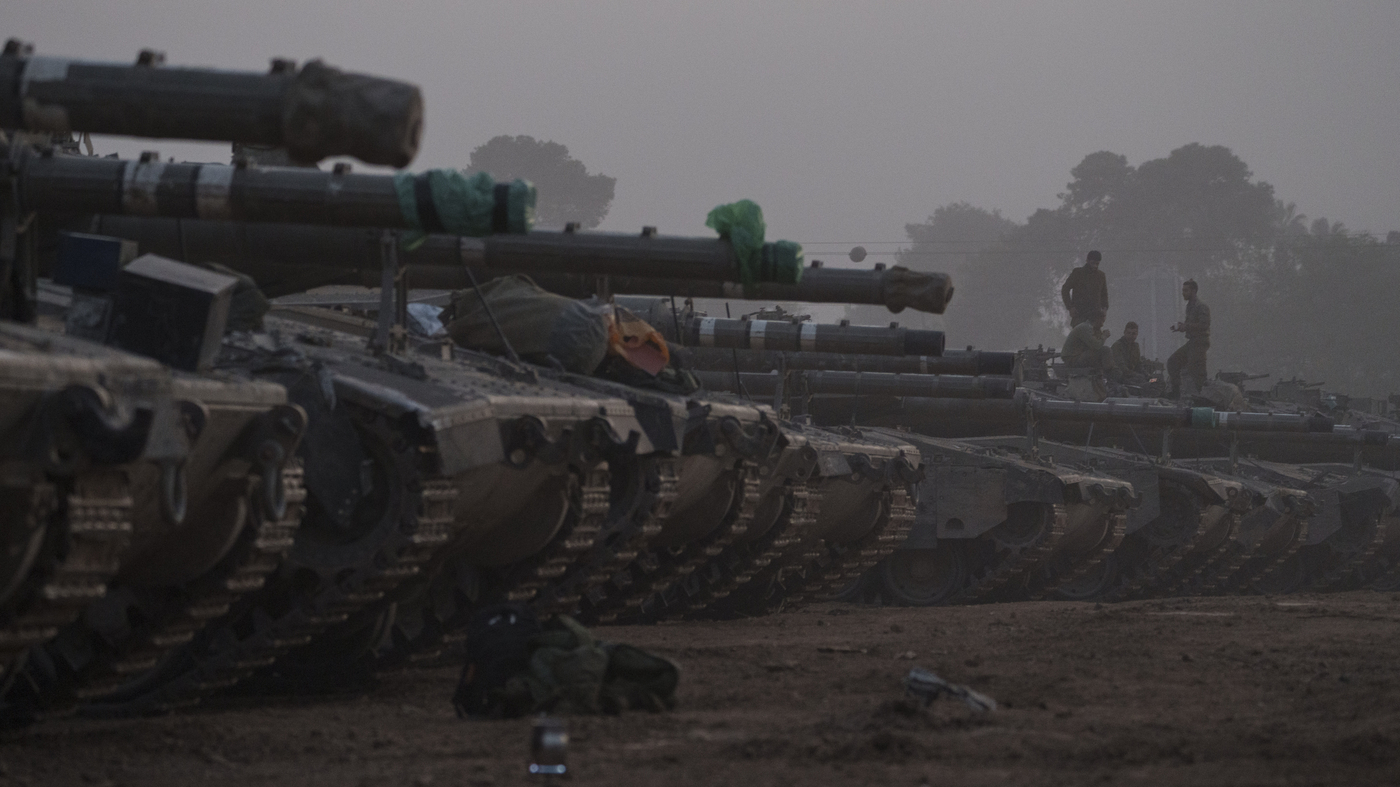
The withdrawal of troops from Gaza could be a sign of scaled-back offensive
Israel is planning to withdraw its troops from the Gaza Strip in the light of the recent Israeli Supreme Court ruling on the Interior Minister’s Judiciary Reform Plan
Earlier this week, Israel said it was withdrawing two brigades from Gaza, with three more brigades to be pulled out at a future date. Israel has not said how many troops it has deployed to the Palestinian territory.
The confirmation of the planned troop drawdown came the same day that Israel’s Supreme Court struck down a key component of Prime Minister Benjamin Netanyahu’s contentious judicial overhaul plan. While the plan is not directly connected to the war effort, it was the source of deep divisions inside Israel and had threatened the military’s readiness before the Oct. 7 Hamas attack that triggered the ongoing war.
Israel has vowed to crush Hamas’ military and governing capabilities in the ongoing war, which was sparked by the militant group’s Oct. 7 attack on southern Israel in which 1,200 people were killed and 240 others were taken hostage.
Israel has come under growing international pressure to scale back its operation that has led to thousands of deaths. US Secretary of State Antony blinken is expected to be in the region next week and he has repeatedly urged Israel to do more to protect Palestinian civilians.
But the move is in line with the plans that Israeli leaders have outlined for a low-intensity campaign, expected to last for much of the year, that focuses on remaining Hamas strongholds and “pockets of resistance.”
The war has displaced some 85% of Gaza’s population, forcing tens of thousands of people in overcrowded shelters or teeming tent camps in Israeli-designated safe areas that the military has nevertheless bombed. Palestinians are left with a sense that nowhere is safe.
Israel also says, without providing evidence, that more than 8,000 militants have been killed. It says that Hamas is to be blamed for the high civilian death toll.
Israel pulls thousands of troops from Gaza, a possible sign of scaled-back offensive: “It is time for reopening the War,” warns Benny Gantz
With tensions high across the region, the United States announced Monday that it would send an aircraft carrier strike group home and replace it with an amphibious assault ship and accompanying warships.
An Associated Press reporter saw at least 17 bodies, including those of four children, at a hospital in the central town of Deir al-Balah after a missile struck a house.
Gaza’s Health Ministry said Monday that 156 people had been killed in the past day. The Israeli military said an air strike killed the Hamas regional commander in Deir al-Balah.
Ilan Weiss was thought to have been kidnapped and is believed to have been dead. Weiss’ daughter, Noga Weiss, 18; and wife, Shiri Weiss, 53; were held in captivity in Gaza and released on Nov. 25 during a weeklong cease-fire.
The Israeli Supreme Court’s landmark decision to strike down part of Netanyahu’s planned judicial overhaul could reopen the fissures in Israeli society that preceded the war against Hamas.
Benny Gantz, a rival of Netanyahu’s who joined the three-member War Cabinet, called on all sides to put aside their differences and focus on the war. “These are not days for political arguments. There are no winners and losers today,” he said.
Israel’s military readiness in Gaza and its threat to the United Nations and the Hague: Syria, Lebanon, and South Africa in the wake of the Gaza War
The court narrowly voted to overturn a law that prevents judges from striking down government decisions they think are unreasonable. The law passed in July was the first part of the government’s plan to curb the authority of unelected judges.
Israel struck Iranian targets in Syria and Lebanon in the last year and engaged in near daily battles with Hezbollah there. State media and security officials in southern Lebanon say that there was a strike on the village of Kfar Kila that killed three people. Hezbollah said the three were some of its fighters.
The United States has sent warships to the Mediterranean and Red Seas, providing protection for Israel and underscoring concerns that the fighting could widen.
Speaking during a visit with troops in central Gaza, Gallant said that an assumption that the withdrawal from the north presaged an end to the conflict was “wrong.”
In a Tuesday evening briefing, Israeli military spokesman Daniel Hagari said Israel’s military remains “in a very high state of readiness in all arenas.”
“In Gaza, our forces are continuing to fight, especially in the Khan Yunis area,” he said. “We are operating above and below ground, eliminating terrorists and continuing to destroy terrorist infrastructure.”
Hagari spoke a few hours after Israel announced that a senior Hamas leader had been killed in an explosion. Arouri, the deputy head of Hamas’ Lebanon-based political bureau, was the senior-most leader of the Islamist militant group killed since the war began.
Meanwhile, Israel says it will appear before the United Nations’ International Court of Justice in the Hague to defend itself against charges of genocide in Gaza. South Africa has asked the court to order Israel to immediately halt its military campaign in Gaza.

